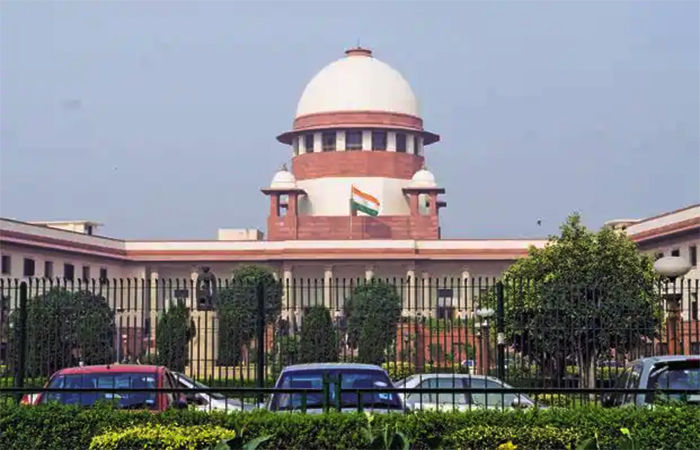
New Delhi: The Supreme Court has given an important decision regarding the right to maintenance of Muslim women. The Supreme Court said that any Muslim woman can ask for alimony from her husband after divorce. Muslim women have been given this right under Section 125 of the CrPC. The husband appealed to the Supreme Court against the order of the Telangana High Court to grant alimony, which was rejected and this decision was given.
A man named Mohammed Abdul Samad from Telangana and his wife got divorced. The husband was ready to pay alimony of Rs 15,000 per month till the time of Iddat. However, the wife demanded alimony under section 125 of CrPC, which was also accepted by the family court. Later, the husband challenged the family court's decision in the Telangana High Court, in which Abdul argued that a divorced Muslim woman has no right to file a petition demanding maintenance under section 125 of CrPC. The woman will have to go under the Muslim Women (Protection of Women's Rights on Divorce) Act 1986 which allows maintenance only till the time of Iddat.
The question before the court was whether a Muslim woman should be entitled to maintenance under the 1986 Act or under Section 125 of the CrPC. Later, the High Court rejected the husband's arguments and ordered the husband to pay alimony of Rs 10,000 per month to the wife. Against which the husband later appealed in the Supreme Court. During the hearing in the Supreme Court, there was a debate on Section 125 of the CrPC and the law made by the then Rajiv Gandhi government in 1986 for the rights of Muslim women. After the debate, the Supreme Court bench of Justice BV Nagarathna and Justice Augustine George Masih gave the verdict. The reactions of both the judges were different but both gave a unanimous decision on the issue of maintenance under Section 125 of the CrPC.
The Supreme Court clarified in its decision that the section of CrPC applies not only to married women but to all women. Therefore, even if a Muslim woman is divorced, she can demand maintenance under Article 125. And in such a situation, the religious law made in 1986 for Muslim women does not come under the provisions of the secular section 125 of CrPC. According to the law, a Muslim woman can claim maintenance under any of these two laws.
The Muslim Women (Protection of Rights on Divorce) Act, 1986
In 1985, the Supreme Court said in the Shah Bano case that Article 125 is secular and a divorced Muslim wife can also demand maintenance. After this decision, anger grew in the Muslim community and the decision started being opposed, after which the then Rajiv Gandhi government made a law for this in 1986, in which alimony was also provided. According to which a Muslim woman has the right to get alimony for the period of Iddat (90 days) after divorce and she will also have to pay Mehr. Even after this, if the Muslim woman is not able to take care of herself, then the magistrate can order the husband, family members or the Waqf Board to pay alimony.
Questions raised before the Supreme Court
The petitioner-husband argued in the Supreme Court that even though a Muslim woman is divorced, she can seek alimony only under the Muslim Women Act, 1986, not under Section 125 of the CrPC. The Supreme Court said in its decision that a Muslim woman can seek alimony using either of these two laws. Therefore, the question does not arise that Muslim women are eligible to receive maintenance only under the 1986 law. With this, the Supreme Court dismissed the husband's appeal.
Provision of maintenance under section 125 of CrPC
Section 125 of CrPC protects the rights of those who are destitute. Such as children, parents, wife etc. Article 125 states for wives that if the wife has been thrown out of the house or divorced, but the wife has not remarried and is unable to run her household, then under this section she can demand maintenance from the person from whom she was divorced. In this case also, the Muslim woman used this provision of this law to demand alimony even after divorce, which has been recognized by the Family Court, High Court and now the Supreme Court.
 look news india
look news india